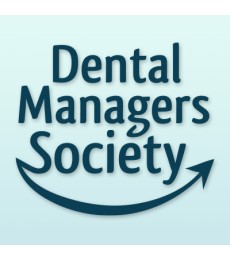You’ve worked hard to create a professional and comfortable dental practice and a safe working environment for all your employees. You have employment policies that relay your expectations to your employees that include a code of conduct. But what about your patients?
Your employment policies are part of an internal business document for the use of the practice and its employees— they do not apply to your patients. So the fact that you prohibit your employees from possessing alcohol on the premises, restrict offensive or harassing speech, or maintain a dress code does not address any such problems with your patients.
The comfort of all patients in the waiting and exam rooms is a key issue for the practice. The safety of those patients and your employees is critical. How can you address this? You can, and should, have a policy that you post in the waiting room and/or distribute to patients.
What should be included in this policy? You should address the possession and/or use of alcohol, drugs, and weapons. You can even reference odors and manner of dress. Restaurants often have a policy that customers cannot enter if they are shirtless and/or not wearing shoes. Your practice can have similar standards, outlined in your “Patient Conduct Policies.”
With the advent of recreational marijuana, some patients may be under a false impression that they can possess such substances when at your practice for treatment. In your “Patient Conduct Policies,” you are permitted to restrict that possession on your premises, just as you have the right to maintain a non-smoking facility and prohibit the consumption of alcohol anywhere on your premises. Your “Patient Conduct Policies” should be specific and clear, so both the patients and staff know that you have their best interests in mind. The fact that a patient may be acting out as a result of legal or prescribed drugs does not mean that you must accept dangerous behavior at your premises.
Additionally, if a patient (or a patient’s relative or friend) is acting in an aberrant manner and appears to be impaired to the point that he or she may cause harm to himself or herself, your staff, and/or other patients, your policy should state that you reserve the right to require that patient (or his or her relative or friend) to leave your premises. Make sure your patients are aware that if you encounter a refusal to leave, law enforcement authorities will be contacted. Posting and/or distributing these “Patient Conduct Policies” will lessen the burden of your staff in defending some action by the practice and allow your employees to merely point to the policy in the event of questionable conduct.
Your practice is a business that you’ve worked hard to build, and a place where you’ve made great efforts to create a welcoming environment focused on dental wellness. In order to maintain and protect this culture, and to meet your obligations to your employees and the other patients you treat, you must be proactive in dealing with patient conduct. By creating a “Patient Conduct Policies,” you’re dispensing some preventive medicine—for everyone’s benefit.
Helene Horn Figman is one of the Dental Managers Society’s “Team of Experts.” Helene often attends our meetings and is happy to offer advice.




